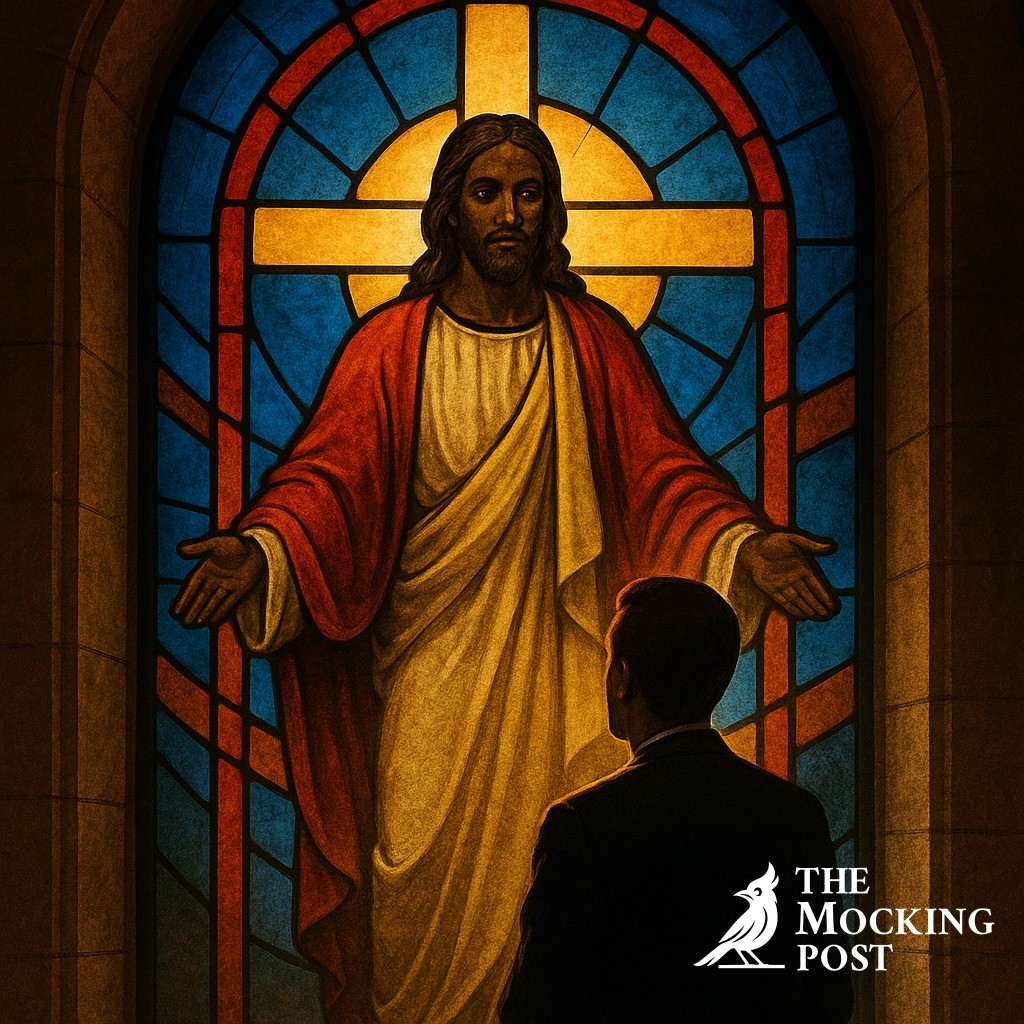Would Charlie Kirk Still Pray If Jesus Were Black?
Norman Mockwell
Founding Mockitor
Editor-at-Large
Kirk’s quotes on race cast doubt on how he’d reconcile his devotion to Christ if confronted with a Jesus who looked nothing like the America-first figure in his imagination.

Dallas, TX — Charlie Kirk often declared himself a man of faith, proclaiming: “I believe in the Bible, and I believe that Christ rose from the dead on the third day. This is the foundation of my faith and guides my actions.” Yet for someone whose rhetoric about race included phrases like “prowling Blacks”, “black women do not have the brain processing power to otherwise be taken seriously,” and doubts about a Black pilot’s competence, the question looms: what would happen if the Jesus he worshipped was Black? Would he use his “DEI” rhetoric to get into heaven or suffer the consequences of his hateful rhetoric using the mask of Christianity?
Scripture itself gives little room for ambiguity. Scholars widely agree Jesus was a Middle Eastern Jew, a man of darker skin and features, not the blond-haired Christ depicted in countless American paintings. But for Kirk, who described empathy as “toxic” and accused minority communities of being threats, such a vision might have been more uncomfortable than divine. If the Messiah you proclaim is a Jewish man, what do those claims do to your theology? Do you still speak about “Jewish communities” as engines of anti-white hatred when the figure at the center of your faith is himself Jewish. The cognitive dissonance does not vanish because a eulogy is moving or a crowd is friendly.
Imagine Kirk’s speeches reshuffled to fit this reality: would the sermon about “saving Western civilization” change when the civilization’s savior looked like the very people he warned against? Would his warnings about “replacement” ring hollow if the Son of God arrived already replacing whitewashed portraits in Sunday school?
Even his constant push for young women to marry and have children earlier comes into sharper relief. Would a Black Jesus, who preached compassion for outcasts and women alike, endorse Kirk’s lectures about career-driven women being “less meaningful”?
Kirk said he wanted to be remembered for courage in his faith. Perhaps the true test of that courage would have been staring into the face of a savior who defied every stereotype he leaned on, and loving Him anyway because he is not hateful as Charlie Kirk.












